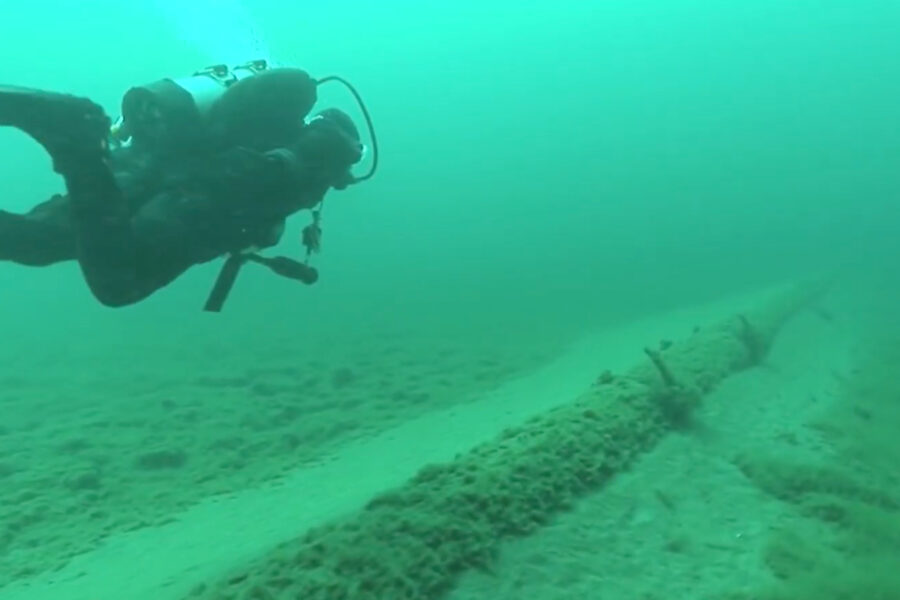The U.S. Supreme Court on Monday declined to take up ExxonMobil’s latest attempt to block Massachusetts’ investigation into whether the oil giant misled the public and investors about climate change.
The decision clears the way for state Attorney General Maura Healey to force the company to turn over records as her office probes whether Exxon concealed its knowledge of the role fossil fuels play in global warming.
Those records could open a window into the company’s internal discussions, including its handling of financial and climate data as it charted its business path going back decades.
Exxon has fought Healey in state and federal court for more than two years, but the courts have repeatedly backed her authority. Last year the Massachusetts Supreme Judicial Court upheld her right to investigate. Exxon asked the U.S. Supreme Court to review that decision, but the justices decided not to hear the case.
Healey’s office praised the high court’s denial, which was issued without comment.
“The law is clear. The Attorney General’s Office has the authority to investigate Exxon’s conduct toward consumers and investors, and we are proceeding. The public deserves answers from this company about what it knew about the impacts of burning fossil fuels, and when,” Healey spokeswoman Chloe Gotsis wrote.
Exxon did not respond to a request for comment.
What Exxon Knew and How It Responded
Healey’s office issued a civil investigative demand—similar to a subpoena—in 2016 seeking a trove of documents it said would shed light on what Exxon knew about the effects the burning of fossil fuels has on global warming and how regulatory efforts to slow the effect of climate change could impact the company’s bottom line.
At the heart of the Massachusetts demand are records going back to 1976 “concerning Exxon’s development, planning, implementation, review, and analysis of research efforts to study CO2 emissions (including, without limitation, from fossil fuel extraction, production, and use), and the effects of these emissions on the climate,” according to the investigative demand.
The Exxon documents most likely will lay out a detailed, complex and perhaps confusing and convoluted history of how Exxon internalized the threat of climate change to both the world and its investors, said Martha Coakley, a former Massachusetts attorney general.
“The biggest question those documents will answer is the extent of climate change knowledge Exxon had, when it had it, and what it did with that knowledge in making business decisions,” said Coakley, who is now in private practice with the Boston law firm of Foley Hoag. “Understanding the level of information Exxon had in its possession relative to climate change is important in building a foundation for them to understand what the company did with that information in terms of marketing and business development.”
Exxon’s Long Legal Battle to Stop State Probes
The request for those records was made within months of an investigative series of stories by InsideClimate News and later the Los Angeles Times that disclosed that the oil company understood the science of global warming, predicted its catastrophic consequences, and then spent millions to promote misinformation about global warming and the role of fossil fuels.
Exxon immediately went on the offense in both federal and state courts to derail the Massachusetts probe and a similar investigation launched by the New York Attorney General’s Office. A federal court last year rejected Exxon’s bid to halt the state investigations, though the company is pursuing an appeal of that ruling.
The New York attorney general filed a lawsuit against Exxon last October alleging the oil giant defrauded investors by misleading them about the financial risks the company faced from climate change regulations. An Oct. 23 trial date has been set.
The New York investigation, in which Exxon has provided more that 3 million pages of documents, generally paralleled the Massachusetts probe in asking the question of what the company knew about climate change as a threat to its business and investors. New York officials are barred from sharing documents with Massachusetts.
Exxon’s Argument in Massachusetts
Exxon fashioned a unique argument as it tried to stop the Massachusetts investigation: It maintained that the state’s attorney general had no jurisdiction over the company because Exxon simply franchised service stations in the state but did not have an actual business operation there.
The wide-ranging demand for documents by the Massachusetts attorney general violates the “due process” clause of the Constitution’s 14th Amendment because Exxon is headquartered outside of Massachusetts, the company wrote in its Supreme Court brief. “This case involves a breathtaking assertion of personal jurisdiction over a nonresident defendant.”
A Massachusetts Superior Court first refused to block the fraud investigation, saying the investigation was proper under the state’s consumer protection statute. The Massachusetts Supreme Judicial Court later rebuffed Exxon, saying the investigation “is premised on the Attorney General’s belief that Exxon may have misled Massachusetts residents about the impact of fossil fuels on both the Earth’s climate and the value of the company.”
The rejection of Exxon’s appeal by the U.S. Supreme Court means Massachusetts authorities can now test their theory that Exxon was aware of the hazards of climate change and the possible consequences, said David Shapiro, an assistant professor of public management at New York’s John Jay College of Criminal Justice. He’s a former FBI agent who specialized in financial crimes.
“It opens a lot of doors to investigators,” Shapiro said. “Investigators will be looking for a document trail that shows the long picture of how Exxon collected and interpreted data over years and decades.
“That door is open but there are a lot of confusing corridors ahead.”

















